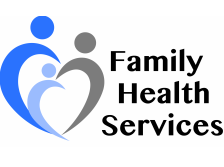Diabetes News – January 2022
January is National Blood Donor Month
Due to increased seasonal illnesses during the winter months and inclement weather conditions, donations of blood and platelets decline, and demand increases. The American Red Ross and Blood Banks of America encourage everyone can donate to continue their donations. Those who have never donated, to make an appointment. Blood donation is safer than ever before and saves lives. Millions of people including cancer patients, organ recipients, and victims of accidents; rely on blood donations from people like you and me.
Here are some of the biggest reasons giving blood is so important.
- About 36,000 units of red blood cells and 7,000 units of platelets are needed every single day in the U.S.
- The most requested blood type by hospitals is type O. This kind of blood can be transfused to patients of all blood types, so it’s always in great demand and very short supply. Only 7% of people in the U.S. have type O.
- A single-car accident victim may need up to 100 pints of blood to survive.
- About 6.8 million people donate blood every year in the U.S.
- 38% of our population is eligible to donate, but less than 10% actually do.
- Donating blood is a simple, safe process. All you have to do is register, take a mini-medical history test, donate, and then accept free refreshments like water, Gatorade, granola bars, etc.
- A single donation from a single patient can help more than one person.
As COVID-19 cases have risen across the U.S., so has the need for convalescent plasma – leading to a shortage of this potentially lifesaving blood product.
There are two ways those who have recovered from COVID-19 can make a big difference:
- A convalescent plasma donation: The Red Cross is collecting convalescent plasma at over 170 locations throughout the country. If you’ve recovered from COVID-19, you may be eligible to donate your plasma to help others going through COVID-19 treatment. Fill out the eligibility form to start the process.
- A whole blood donation: Plasma from whole blood donations that test positive for COVID-19 antibodies may be used to help COVID-19 patients. Make an appointment to give blood by downloading the free Blood Donor App, visiting RedCrossBlood.org or calling 1-800-RED CROSS (1-800-733-2767).
Kick off the year by making a lifesaving donation this National Blood Donor Month.
Source: https://www.redcross.org
The Diet-Betus – our version of recipe of the month
January is also National Oatmeal Month. Great taste, easy to make with plenty of fun options, not to mention healthy and filling.
Overnight Oatmeal with Milk
Prep: 10 minutes
Additional: 8 hours
Total: 8 hours, 10 minutes
Servings: 4
Yield: 4 cups
Ingredients
- 2 cups low-fat milk, almond milk, or soy milk
- 2 cups rolled oats
- 1 teaspoon lemon zest
- ½ teaspoon vanilla extract
- 2 fresh fruit, chopped
- ⅓ cup pine nuts, or chopped nuts
- 2 tablespoons agave nectar or sugar substitute (optional)
Step 1: Combine milk, oats, lemon zest, and vanilla extract in a large bowl. Cover and refrigerate until oats have absorbed milk, 8 hours to overnight.
Step 2: Stir fruit, nuts, and agave nectar (sugar substitute) into the oatmeal.
Be creative, combine your favorite flavors. Try adding chia seeds or pumpkin seeds.
Nutrition Facts
Per Serving:
319 calories; protein 12.3g; carbohydrates 44.8g; fat 10.9g; cholesterol 9.8mg; sodium 53.2mg.
Source: By Totally Fit & Fabulous
Community offerings: *
* Due to coronavirus/COVID 19, many community offerings have been changed, postponed, or canceled.
Please call the number listed for the event to verify availability, dates, and times.
If you have questions regarding Coronavirus/COVID-19 please call 1-833-4-ASK-ODH (1-833-427-5634)Or, go to https://www.cdc.gov/coronavirus/2019-nCoV/index.html or https://coronavirus.ohio.gov/wps/portal/gov/covid-19/.
Diabetes Empowerment Education Program (DEEP)
COST:
Free
CONTACT:
Tina Ellinger 419-624-1856
The Diabetes Empowerment Education Program [DEEP] is offered every Wednesday for six weeks. Good attendance is important. This free program is for diabetics, pre-diabetics, and spouses or caregivers of a diabetic. Residents of Erie County, aged 60 or older, please call 419-624-1856 to register.
Diabetes Support Group – Firelands Regional Medical Center
The Diabetes Support Group presented by Jean Feick CNP, CDE, meets the third Wednesday of each month Sept–November and January-May from 12:00pm –1:00pm. This meeting is free to the public and no registration is required. Attendees are welcome to purchase lunch in the hospital cafeteria and come to the adjacent Cafeteria Meeting #1. A different topic will be reviewed each month. If you have questions, please contact the Diabetes Education Department at 419-557-6992.
HEALTH & WELLNESS SCREENING – offered by Firelands Regional Medical Center
You must Pre-register for all Lab Work at 419-557-7840.
Sandusky Health & Wellness
Firelands Regional Medical Center South Campus
1912 Hayes Avenue Sandusky, OH
Saturday, February 19
7:00 am -9:30 am
Firelands Regional Medical Center South Campus
1912 Hayes Avenue Sandusky, OH
Saturday, March 12
7:00 am -9:30 am
Firelands Regional Medical Center South Campus
1912 Hayes Avenue Sandusky, OH
Saturday, April 9
7:00 am -9:30 am
Firelands Regional Medical Center South Campus
1912 Hayes Avenue Sandusky, OH
Saturday, May 14
7:00 am -9:30 am
Health & Wellness Screenings include:
- Complete Blood Count with Metabolic & Lipid Panel (No Eating or Drinking for 12 Hours – Water Allowed – includes liver and kidney function studies, fasting blood sugar, thyroid, cholesterol, HDL/LDL, and triglyceride levels along with a complete blood count.) – $45;
- Hemoglobin A1C (A three-month report card on how well your blood sugars have been running. A test used to diagnose diabetes and/or to evaluate how well your treatment plan is working.) – $25;
- PSA (Prostate Specific Antigen)- $30;
- Vitamin D – $35;
- TSH – $25
Please comply with the following COVID-19 precautions:
- Wear a mask
- Have your temperature taken upon arrival
- Follow social distancing practices
Please note
- Patients will not be allowed to enter until their scheduled time
- Walk-ins will not be accepted
- Only the registered patient will be allowed to enter the screening unless the patient needs assistance from an accompanying person
- We are unable to perform any additional physician-ordered tests not included in the list above.
Contact: Centralized Scheduling at 419-557-7840 to pre-register
Diet and exercise are an essential part of diabetes management, so is routine testing.
The A1C test—also known as the hemoglobin A1C or HbA1c test—is a simple blood test that measures your average blood sugar levels over the past 3 months. It’s one of the commonly used tests to diagnose prediabetes and diabetes, and is also the main test to help you and your health care team manage your diabetes. Higher A1C levels are linked to diabetes complications, so reaching and maintaining your individual A1C goal is important if you have diabetes.
Last quarter, 70% of our diabetic patients had an A1C of less than 9%. Talk with your provider to discuss the right options for you.



